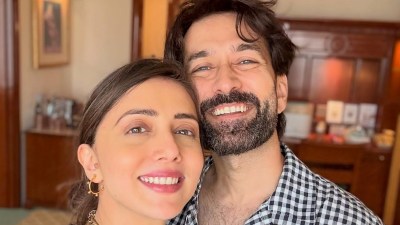Damage control: House goes into huddle
During the Provisional Parliament of 1950, when Congress Lok Sabha member H.G. Mudgal was found to have entered into an agreement with the B...

During the Provisional Parliament of 1950, when Congress Lok Sabha member H.G. Mudgal was found to have entered into an agreement with the Bombay Bullion Association to ask questions in the House and to do promotional work among members of parliament on its behalf, Prime Minister Jawaharlal Nehru saw to it that he was 8216;expelled8217; from the House. Mudgal offered to resign. But Nehru requested then Lok Sabha Speaker P.G. Mavalankar not to accept the resignation and, instead, expelled him from Parliament and the party.
In 2005, 11 Members of Parliament8212;five BJP MPs from the Lok Sabha and one from the Rajya Sabha, two from the BSP, one from the RJD and one from the Congress all from the Lok Sabha8212;have been broadcast across the country taking money to raise questions in Parliament during Question Hour. In response, the Leader of the House in the Lok Sabha, Pranab Mukherjee, told Speaker Somnath Chatterjee today: 8216;8216;This matter should be investigated quickly. There8217;s no difference of opinion among the political parties; whatever necessary steps you take, the House will be behind you.8217;8217;
Subsequently the Speaker called an all-party meeting to decide on a suitable course of action. But, at the same Mr. Chatterjee 8216;8216;effectively suspended8217;8217; the accused MPs by asking them not to attend the House until the inquiry was involved to please do not attend the session until the inquiry was over.
By 5.30 p.m., taking note of the mood of the House, he appointed a five-member Special Committee under the chairmanship of Congress MP Pawan Kumar Bansal, to look into the episode and submit a report by December 21, 4 p.m. The report would be presented in the Lok Sabha the same day.
Therefater, high-level sources said, a motion would be moved in the House, either by the Chairman of the Special Committee or by the government, seeking the disqualification or explusion of the accused MPs on the basis of the report.
The Rajya Sabha did not lose out on its share of the drama. When Chairman Bharion Singh Shekhawat expressed his 8216;8216;anguish8217;8217; over the manner in which the dignity and the prestige of Parliament was comprised on the cash-on-camera sting8212;8216;Operation Duryodhan8217;8212;not a soul stirred in the House. The display of lungpower that usually dominates House proceedings was completely absent.
The case of the lone Rajya Sabha member involved, the BJP8217;s Chattrapal Singh, was referred to the Ethics Committee chaired by senior Congress leader Karan Singh, which by evening decided to issue a show-cause to him with a 48-hour deadline .
Unlike the Lok Sabha, where the rules of the Ethics Committee are yet to be formulated, the Rajya Sabha already has such a body well-established. The BJP8217;s deputy leader in the Rajya Sabha and member of the RS Ethics Committee, Sushma Swaraj, said, 8216;8216;The Committee has called for the cash-on-camera tapes to verify their authencity before any action is taken.8217;8217;
LS SPECIAL COMMITTEE
Terms of reference: It has been authorised by the Speaker to set its own procedure and rules to conduct the probe against the MPs. It will have full powr to conduct an independent inquiry.. Chairman: Pawan Kumar Bansal Congress. Members: V.K. Malhotra BJP, Mhd. Salim CPI-M, Ram Gopal Yadav SP, C. Kuppuswamy DMK.
RS ETHICS COMMITTEE
Chairman: Karan Singh. Members: Bimal Jalan nominated, Sushma Swaraj BJ, Nilotpal Basu CPI-M, Janeshwar Mishra SP, P.G. Narayanan AIADMK, R. Chadrashekhar Reddy TDP, Ramdeo Bhandari RJD, Mayawati BSP, B.J. Panda BJD.
- 01
- 02
- 03
- 04
- 05































